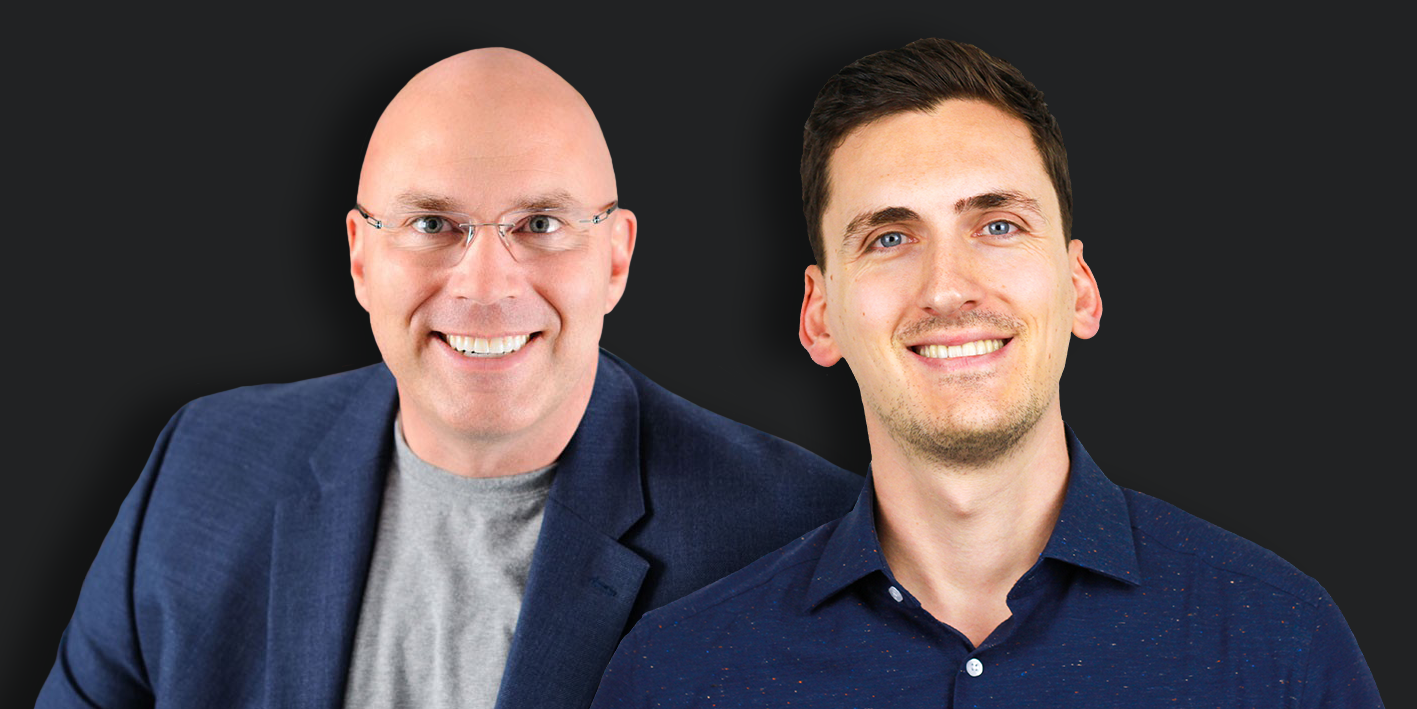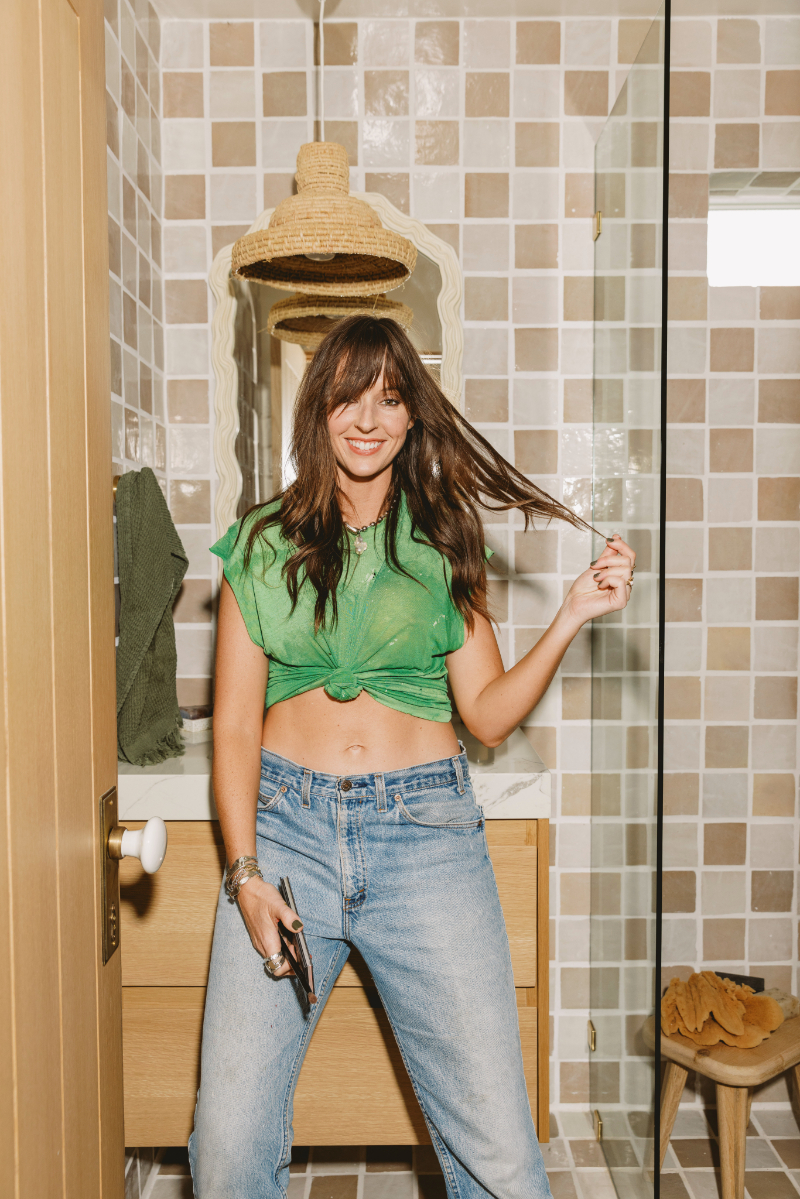Niche marketing, when done with intentionality, can transform your business.
Niche describes a specific and unique segment of a larger market. By getting clarity about the niche you want to serve, you can then know where to find your ideal audience and how to adjust your visual branding and copy to attract them.
Two people that understand the ins and outs of this niche marketing approach is Tom Ross and Mike Janda.
Tom is the founder and CEO at Design Cuts, the highest-rated online marketplace for designers. Design Cuts helps their community of 550,000 members save money off the best digital resources to help their regular creative projects. They also empower hundreds of creatives to make money passively via their skillsets, and have earned their shop owners millions of dollars.
Tom also hosts the popular podcast The Honest Designers Show and Biz Buds, which have received over 1.5 million downloads. He loves mentoring fellow creatives to help them master their marketing and regularly speaks at creative events to inspire others.
Mike is an award-winning creative director, designer, and agency veteran. In 2002, he founded the creative agency Riser, which provided design and development services for clients that included Disney, Google, Warner Bros., Fox, NBC, ABC, National Geographic and many other high-profile brands.
Mike sold his agency in 2015 and now spends his time speaking, developing books, courses, and social media content to help creatives level-up. He is the author of Burn Your Portfolio and The Psychology of Graphic Design Pricing.
Tom and Mike are super knowledgable educators and mentors for creative entrepreneurs. This episode is packed for of information and practical takeaways of how you can implement a niche marketing strategy, whether you have an audience right now or not.
Related Post: Riches in the Niches: Discovering Your Sweet Spot
Stellar insights
- [08:56] What makes Mike and Tom's content powerful is that it comes from their own real experience—being intentional about sharing the truth and and things that are tried and tested.
- [11:38] “If you try and appeal to everyone, you appeal to no one.” -Tom
- [12:22] When you get clarity around your niche, you can adjust where you spend your time, how to reach your audience, your brand visuals, your copywriting, etc. Without niching down, frustration, imposter syndrome, and self doubt creeps up.
- [13:30] Don't let figuring out your niche slow you down at the onset of your business—it's an ongoing process and you will find and refine it over time.
- [17:03] Mike explains how you can run niche experiments to see what works, where you could expand, and what you can let go.
- [20:31] Tom summarizes his four-part framework for niching: Enjoy the subject matter, have credibility, like the people in the niche, and that niche has to have the money to be able to pay you.
- [22:55] If niching by topic, look at hashtags and Facebook groups to see if there are preexisting communities that already love the topic.
- [24:55] Consider how deep people's passion goes around a topic—super passionate subcultures can really help you sell your work.
- [26:25] Case studies (or concept projects if you don't have case studies) can be incredibly powerful as part of your marketing strategy.
- [29:43] Quality over quantity is better for case studies and galleries in your portfolio. Avoid gallery syndrome and curate, curate, curate if you have a large volume of projects to show off.
- [35:38] Don't skip defining your audience. Consider their problems, their fears, and their likes.
- [43:21] If your account isn't growing, stop waiting for the followers to come. Go find them!
- [47:08] “Get in the business of listening.” -Tom
Rapid Fire Questions
What is your best time-saving hack?
Mike: My best time saving hack is don't start the thing the day you're supposed to do it. Start early and you don't have to start the whole thing…Let me just give you an example. I started doing something early on when I had tons and tons of work as a freelancer, I would look at what I had to have done tomorrow. And I would open up Photoshop, which I used for a lot of design back then. And I would just throw all the assets into the Photoshop file and then I would save the Photoshop file and close it. And that way, when I started in the morning, I felt like, okay, I already got all the assets stuck in this Photoshop file. Now I just can arrange them in my design. I don't have to start with the organizational piece. So it's been a huge time saver. I still do that now. I'll know that I have something that I have to get done in the morning. So I'll just scribble the initial outline of it in my Evernote so that it's at least started. And then the next day I can go in and fine tune and finish instead of just waiting to start it that same day.
Tom: My answer would be batching. It's the least efficient way to work when you're jumping between 10 different tasks that are all totally disparate. So I've really started clumping together, very similar tasks and just knocking them out in one batch.
What is the book you've recommended most to others?
Mike: How to Win Friends and Influence People, Dale Carnegie. I recommended to tons and tons of people. I've bought it for so many people. It's a must-read. It should be titled How to Be Socially Acceptable in Humanity. I think that'd be a better title for it. It's just so valuable because so much of your success is dependent upon your ability to connect and relate to other people.
Tom: And mine's similar in terms of theme, but it's The Thank You Economy by Gary Vaynerchuk. I It's actually his least bestselling book, but in my opinion, his best one and the premise is essentially the same way we used to have a thriving high street and the business owners had to be super nice because everyone in the village would talk and word of mouth was a real thing. Social media is like the modern day equivalent of that. So we have to be in the business of being kind. And it's like a very actionable look at how to do that. And it was a real kind of formative thing of me leaning into my natural kindness as an entrepreneur and kind of validating that.
What is something you've learned about yourself this last week?
Mike: This is a tough one. I would say I still have a lot to learn. I've learned that over and over again in my life, but I still have a lot to learn. I just launched a big freelancer course of a couple of weeks ago. And now here I am in the post launch, how do I keep engagement happening about that course? How do I start marketing it in my email list? How, and when should I start running Facebook ads and things…I've got to learn all this stuff that I've never had to do. My agency used to do a lot of this stuff, but it was when I was running my agency and hiring people who did this stuff. So now I'm here again, a solopreneur having to learn a whole lot of new things. And I've, I've been reminded of that again here in this past week.
Tom: I just came out two weeks of burnout, which sucked. And I did a lot of introspection in the last week and thankfully I'm coming out of it now. And when I was thinking about it, I was trying to figure out, you know, what causes the burnout. And I had this huge moment of revelation that actually it wasn't the overwork or the work hours. It was the absence of self care. And I figured out that a lot of the things that keep me sane and happy, like exercising, drinking enough water, getting enough sleep. Those are the things that suffer when I start working too much. And I'm like, Oh, I'll skip the workout today. Or I won't have breakfast until mid day or whatever. It really dawned on me. It's like, actually the work is not the thing that's doing it because when I maintain a healthy self care routine, I can work long hours and feel fine. It's just when I neglect that side of things that I felt like crap.
Subscribe & Review
If you had an ah-ha! moment or learned just ONE new valuable bit of information, I'd be so grateful if you would leave a 5-star review and tell me what you love most about this podcast. It's a HUGE motivator for me to keep creating this for you. In addition, it helps our raking in iTunes so that more people discover this show.
And to make sure you never miss an episode (including any pop-up bonus episodes), click here to subscribe on Apple iTunes!
Links mentioned
- The Biz Buds Podcast
- Instagram: @morejanda and @tomrossmedia
- Facebook: Mike Janda and Tom Ross
- Twitter: Mike Janda and Tom Ross
- michaeljanda.com
- Tom's FREE Niche Guide
- Design Cuts, the highest-rated design marketplace in the world
- Burn Your Portfolio by Michael Janda*
- The Psychology of Graphic Design Pricing by Michael Janda*
- How to Win Friends & Influence People by Dale Carnegie*
- The Thank You Economy by Gary Vanerchuk*
- Zulfa, The Cosmic Feminist
- Loveleigh Loops
*This is an affiliate link which means that I may receive a small commission at no extra cost to you. This helps me be able to produce free, valuable content for you. Thanks for your support!
Related Episodes
Episode 43: How to Elevate Your Brand Through Visual Storytelling with Nick Onken
Episode 48: The Biggest Mistakes People Make When Creating a Website with Jen Olmstead
Episode 46: The Importance of Customer Loyalty and Listening to Your Audience with Casey Graham
Episode 11: Tips for Finding Your Artistic Style
Episode 55: Why You Need to Stand Out to Succeed Online with Kira Hug

















+ show Comments
- Hide Comments
add a comment